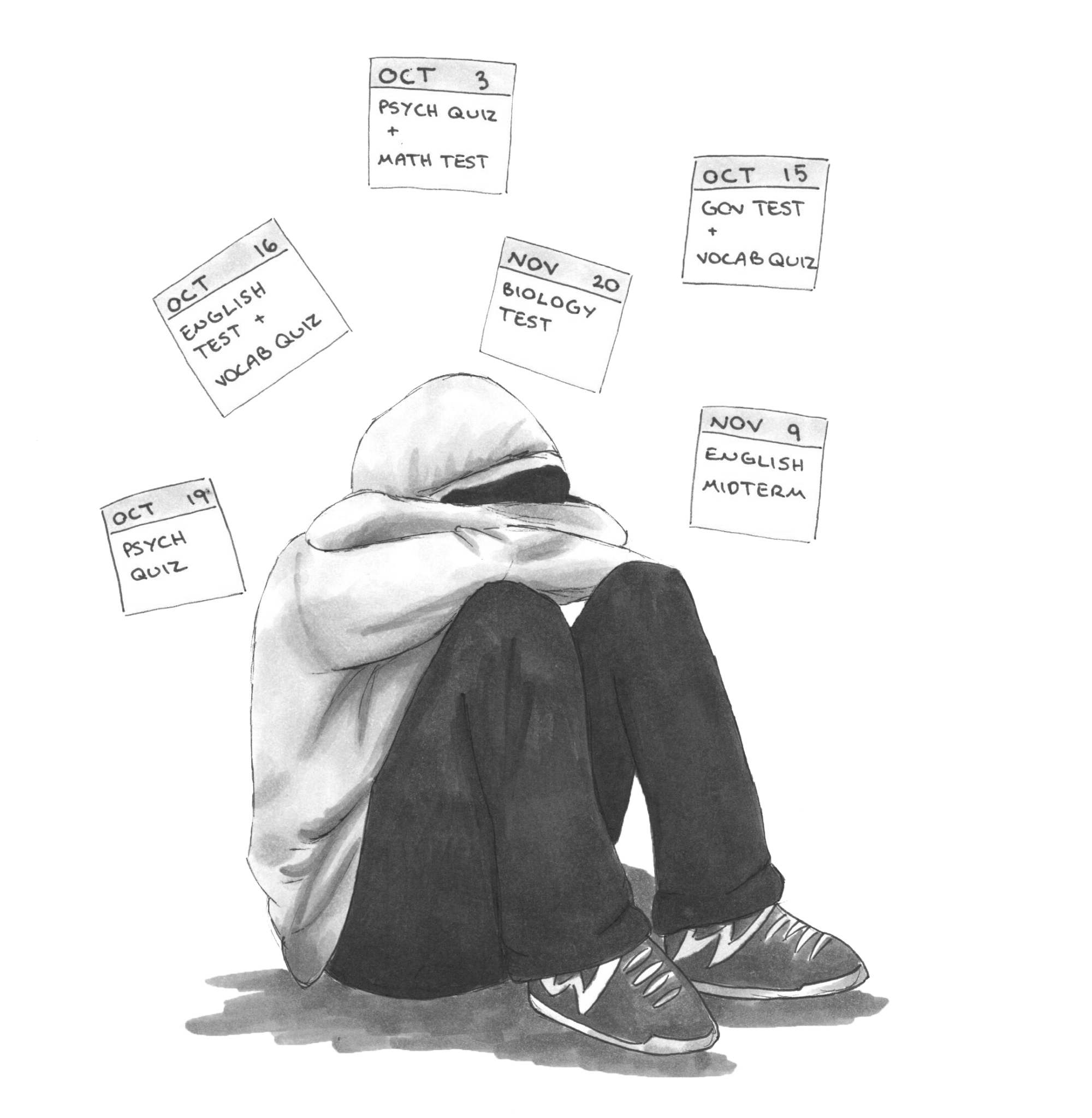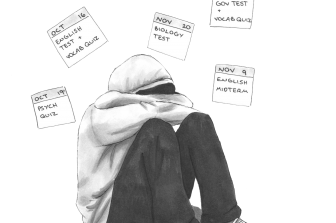
“I am one of [those] people who [have] a hard time simply memorizing. I need visuals or some sort of representation. I am always anxious for what’s ahead, juggling every case, term, and definition,” says freshman Alyce Thornhill. During tests, many students like Thornhill experience test anxiety, a feeling defined by the Virginia Commonwealth University Medical Center as “a state of uneasiness and distress before or during a test that often lowers performance.” Test anxiety is prevalent in the education system, and according to the American Test Anxieties Association, 16-20 percent of students experience high test anxiety.
Each student’s first encounter with test anxiety varies. Freshman Megan Pangilinan recalls, “It started in middle school. I was overwhelmed by the different periods, compiling assignments, and [coordinating] each class.”
The transition from middle school to high school can serve as a source of pressure. Thornhill says, “High school gives you independence, but so much that you feel you’re driving yourself towards your future but have no control of the wheel — knowing that everything counts. In high school, even the smallest mistake can rewrite your future.”

This stress is affected by the test and time allotted. Pangilinan says, “On timed exams, my memory feels like it’s not given enough time to process the information.”
English teacher Dena Johnson validates these concerns, saying, “With timed writing tests, students feel more worried because they don’t know what to expect, and they don’t have any crutches. However, multiple choice can also be scary because the questions might be more challenging.”
The compounded fear, emotion, and pressure result in a diverse set of symptoms. When asked how she feels when faced with test anxiety, Thornhill says, “I can’t sleep, [I] feel overwhelmed, frustrated, scared, [and] am easily intimidated.”
Some students feel that the symptoms affect their test performance. Junior Isaac Sandoval says, “I get lost during the test. My thinking process isn’t clear or straight [because I’m] just wondering what to write.”
The pressure to perform up to standards defined by parents and society also plays a significant role in student test anxiety. Sophomore Erin Flanagan says, “Parental pressure definitely causes anxiety. You could be threatened to possibly have your stuff taken away.”
Regarding parental pressure, science teacher Megan Thaler says, “It’s hard for parents to get a sense of how their child is doing, since tests are all they have to go on. They don’t see what their child is doing in class, so they don’t get the full picture like we [teachers] do.”
Personal ambition may also amplify the anxiety. Sandoval says, “There’s always pressure to get an ‘A.’ That’s the common goal, and anything less than that, you don’t feel good about it. If you know it’s an important test, it’s probably going to have more of an effect on you.”
Such pressure increases when students feel they are not meeting standards. Flanagan says, “Last year, whenever I had a low grade, I felt pressure to perform well on the test so I could raise my grade.”
Another massive factor contributing to test anxiety are AP classes, which are weighted more heavily. Math teacher Kristopher Reiss says, “[The classes] increase test anxiety dramatically. Some kids will take four AP classes, which are considered college-level, and take three other normal classes.”
Much of the pressure, however, comes from a drive to get into a prestigious college. Thaler says, “Although now colleges are looking for a more well-rounded student, they are never not going to care about your grades.”
While test anxiety remains an internal issue, many teachers try to mitigate the pressures. Johnson says, “I try to help by better preparing my students for the test, so there are no surprises. I give them examples, study guides, and answer any questions they have in class to make sure they’re prepared.”
Other teachers address the emotional sphere. “I tell students to write down how they feel on the top of their test. All they think about is their stress, so if they write it, they might be able to set it aside and focus on the test,” says Reiss.
To decrease levels of anxiety, Johnson suggests, “Be prepared. Also, [developing] your own strategies to calm down is helpful, like making sure you’re getting enough sleep and breathing slowly.”
While test anxiety may be pervasive and triggered by similar stresses, individual efforts, preparation, and confidence can make a significant difference.



